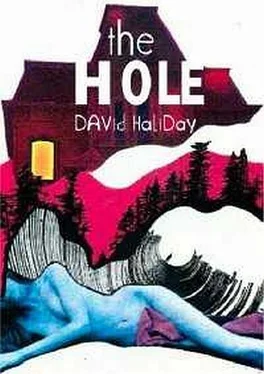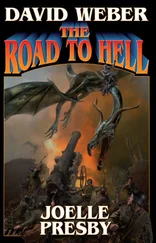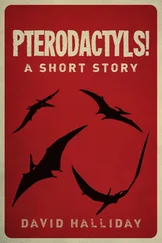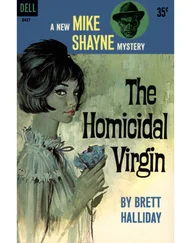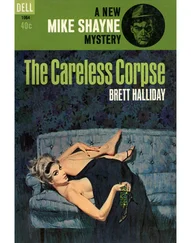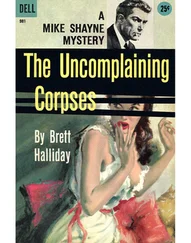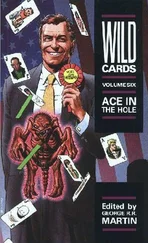David Halliday - The Hole
Здесь есть возможность читать онлайн «David Halliday - The Hole» весь текст электронной книги совершенно бесплатно (целиком полную версию без сокращений). В некоторых случаях можно слушать аудио, скачать через торрент в формате fb2 и присутствует краткое содержание. Жанр: Криминальный детектив, на английском языке. Описание произведения, (предисловие) а так же отзывы посетителей доступны на портале библиотеки ЛибКат.
- Название:The Hole
- Автор:
- Жанр:
- Год:неизвестен
- ISBN:нет данных
- Рейтинг книги:4 / 5. Голосов: 1
-
Избранное:Добавить в избранное
- Отзывы:
-
Ваша оценка:
- 80
- 1
- 2
- 3
- 4
- 5
The Hole: краткое содержание, описание и аннотация
Предлагаем к чтению аннотацию, описание, краткое содержание или предисловие (зависит от того, что написал сам автор книги «The Hole»). Если вы не нашли необходимую информацию о книге — напишите в комментариях, мы постараемся отыскать её.
The Hole — читать онлайн бесплатно полную книгу (весь текст) целиком
Ниже представлен текст книги, разбитый по страницам. Система сохранения места последней прочитанной страницы, позволяет с удобством читать онлайн бесплатно книгу «The Hole», без необходимости каждый раз заново искать на чём Вы остановились. Поставьте закладку, и сможете в любой момент перейти на страницу, на которой закончили чтение.
Интервал:
Закладка:
Jack nodded and looked around the bar. He grabbed a package of cigarettes from under the bar and offered one to Hank. Hank shook his head. Jack flipped a cigarette into his mouth, tossed the cigarette package into a small nook beside the cash register and pulled out his lighter, which he twirled in his fingers before lighting his cigarette.
Hank watched with marvel. “That’s quite a trick.” Jack shrugged his shoulders modestly.
Hank sipped at his beer. “Don’t smoke. Made me dizzy when I tried it as a kid so I never took it up.” He laughed. “Didn’t want to stunt my growth. Don’t regret it. Can’t see what good it does you and then there’s all the money you spend. Figured it’s cheaper to marry and divorce, pay alimony and child support, send the kids to college than to smoke for thirty years. Once had an interview with Philip Morris down in the States. Five-figure position. Membership at the golf course. They have their own golf course. You should see the clubhouse. There’s a lot of money in weeds. In the end I had to turn them down. They insisted that I smoke their brand. I tried to tell them that I didn’t smoke anyone’s brand. Those were the days when nine out of ten doctors recommended 19 one of their brands and so they couldn’t understand why I wasn’t fond of good old St. Nic. I had my principles, and like I say, smoking made me dizzy. And if that don’t convince you, think about the loss of time.
We’re only allotted so much grace. I could feel the grains of time slipping through the mouth of the hourglass and I didn’t want no weed in that mouth. Take Olaf Stapledon, for example.”
Jack took a dry cloth, his cigarette hanging from his lips, lifted Hank’s beer and dried the bar. Then he replaced the bottle on a coaster. “What was that first name?” Jack asked, a faint wisp of a smile on his face.
“Olaf.”
“Olaf?” Jack considered. “What kind of name is that? Danish? Dutch?” Hank shrugged.
Jack shook his head, took his cigarette from between his lips and laid it in an ashtray. He smiled. “Okay, who the hell was Olaf?” Hank smiled and leaned over the bar like a fisherman who has felt a tug on the end of his line. “He was an English writer and communist sympathizer in the thirties and forties. No one remembers him now.
Wrote quite a few bestsellers, which no one reads anymore. Supported causes, which no one remembers. Just wasted his time as far as I can see.”
“Well,” Jack said, his eyebrows furrowed like parenthesis, “you remembered him.”
“Ah, that don’t count.” Hank straightened up, raising a finger for em-phasis, “I’m a collector. Pointless hobby I admit, but it keeps my mind out of the traffic. I’m like a stamp collector, collecting stamps that he never intends to use on letters. Funny that no one collects the letters. But, back to our Danish subject. You see, our friend Olaf has been reduced to information. Useless information for most folks. He’s not an important figure in history, or literature, or anything. I suppose he was important to his kids, but they didn’t amount to much. One became a lawyer but that’s about where they topped off. You see where I’m heading? How many people will be remembered from the twentieth century? Einstein, Freud, Picasso, Gandhi, Hitler? A handful in a population of billions.
Getting the lay of the land yet? Olaf in his time was considered brilliant, dedicated, even charismatic. Today he’d be doing the circuit of talk shows. They might make a made-for-television movie about him. It would all lead to a familiar end. Anonymity. This century will be known for its gadgets-the telephone, the automobile, the computer, the electric guitar, the A-bomb, the paper clip. We won’t be remembered for our insights, our great minds. We are the literate dark ages. Have you got the 20 picture, Jack? We’re just replaceable parts in the machine called Modern Living.”
“Well,” Jack muttered, “that’s pretty depressing. What’s the point of striving for something if you’re going to take it to the grave with you?”
“Vanity, Jack. We’re filled with our own sense of self-importance. Each of us thinks that we’re the center of the universe when we’re no more important than the plant that produced that cigarette you’re smoking or the drink I’m enjoying. It’s that vanity that keeps the machine working smoothly.”
Jack straightened up, and taking a deep breath, declared, “I like to think I’m of some use. People need someone to listen to them.”
“Listening to people who have nothing to say.” Hank smiled knowingly, but realizing that Jack might take offense to his remarks, back-tracked. “But I suppose comfort is not to be underestimated. Someone has to hold the hands of the beloved during their last hours on this sphere. Bartenders and priests-we couldn’t do without them.” The door of the bar opened and a couple stepped into the room and took a seat at a table near the cigarette machine. Jack excused himself as he went to serve his new customers. After he had taken their order and delivered their drinks he returned to the bar.
“I suppose this Olaf is dead,” Jack suggested.
Hank nodded. “In 1950. September sixth.” Gesturing with his head to the new couple seated at the table in the corner, Hank added, “Take that young couple that you just served.”
“What about them?”
“What does life hold in store for them?”
Jack shrugged. “Don’t know much about them. I’ve seen him in here a couple of times with his buddies. I think they’re in some kind of softball league. Come for a few beers after the game. I don’t think I’ve seen the girl in here before. Not much to look at but she seems nice enough. They look like they’re courting.”
“He’s got his hand on her knee,” Hank said.
Jack stared across the room.
“How can you see that from over here? The bar’s too dark. And your back is to them.”
“I’m looking at them through the mirror behind you.” Hank sipped at his beer. “He’ll be trying to slip into her panties later in the evening. The vulgar groping of the lower classes.”
Jack looked behind him into the mirror and smiled.
“I guess we were all young once,” Jack said, shaking his head. A new customer stepped into the room and took a stool by the bar. Jack moved down the bar and took his order, reaching under the bar into a cooler for a beer.
Hank raised his own beer to his mouth and stared into the mirror. He saw the young man’s hand slide up the girl’s skirt. She playfully rapped his hand and smiled. Not here, he could read on her lips. The door of the bar opened again and in stepped Mary. She looked around, spotted Hank, and crossed over to the bar and took a stool beside him.
“I hope you haven’t been waiting long?” she asked, giving Hank a kiss on the cheek. “Boring Jack with your stories?”
“Do you know who John Andrew Kenney was?” Hank asked before Mary had a chance to catch her breath. “In 1944 he was chosen by the Harmon foundation as one of the United State’s most prominent Negroes.”
Mary laughed. “You are the most remarkable man I have ever met. I suppose he died in 1950.”
Hank smiled. “You got it, sister. Tell me now, why did they give an award to the most prominent Negro? Why would you give an award to any prominent member of any ethnic background? Doesn’t it reek of an inferiority complex? Were any awards given to the most prominent Eng-lishman of 1940? The upper classes never award themselves. They don’t have to. They’re in charge.”
Mary shook with laughter as she gestured to Jack to bring her the usual.
“Do you know what this big lug told me this morning? That the world ended in 1950, that we’re-what did you call it? — the flotsam of time’s demise. Isn’t that the craziest idea you ever heard?” Jack shook his head and looked at Mary’s dress, smiling with approval.
Читать дальшеИнтервал:
Закладка:
Похожие книги на «The Hole»
Представляем Вашему вниманию похожие книги на «The Hole» списком для выбора. Мы отобрали схожую по названию и смыслу литературу в надежде предоставить читателям больше вариантов отыскать новые, интересные, ещё непрочитанные произведения.
Обсуждение, отзывы о книге «The Hole» и просто собственные мнения читателей. Оставьте ваши комментарии, напишите, что Вы думаете о произведении, его смысле или главных героях. Укажите что конкретно понравилось, а что нет, и почему Вы так считаете.
